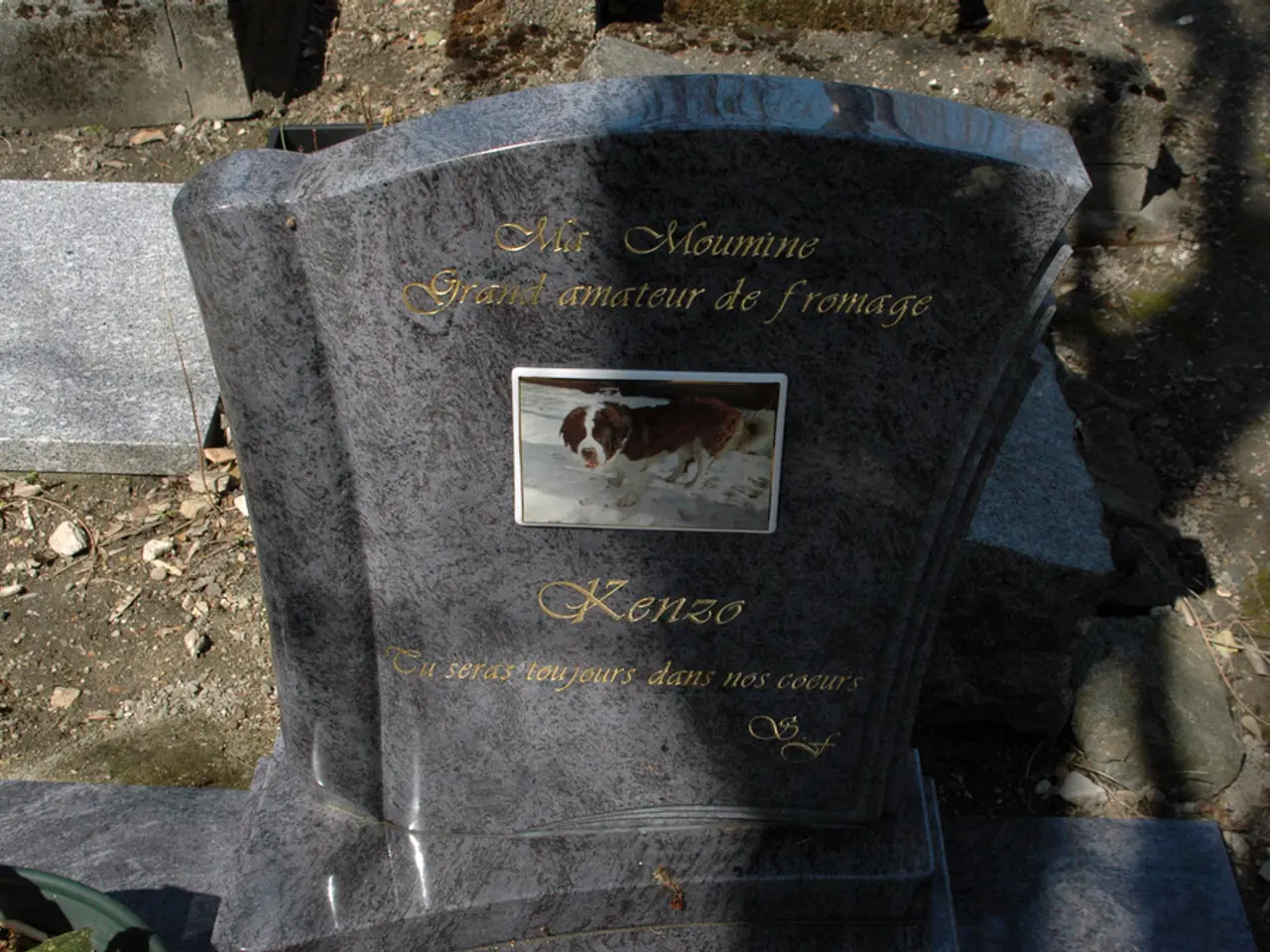Workers in Ukraine's funeral industry struggling amidst the weight of the ongoing conflict
In the heart of Sumy, a town near Ukraine's border with Russia, a grim reality unfolds daily. Funeral director Ostapenko, amidst the chaos of a relentless war, tends to the region's deceased, laying them to rest in coffins [1]. Nearby, artist Igor Kruzo immortalizes the names of the victims on granite tombstones and paints poignant portraits of them [2].
The cemetery bustles with activity, as workers prepare a dozen newly dug graves for young combatants, a stark reminder of the war's devastating toll [1]. Kruzo finds it challenging to live with the faces he has rendered for the gravestones, as they are of soldiers, civilians, children, and local people [3].
The tragic events of April 13, when a double Russian ballistic missile strike on the city claimed 35 lives and wounded many more, are etched deep in the minds of the community [4]. Death, it seems, does not discriminate between young and old [5].
Ostapenko has found solace in rejuvenating the features of the deceased under his brush, a poignant act of remembrance [6]. He has also found comfort in conversations with bereaved families, which help him cope psychologically [7].
The advancing Russian troops have brought the fighting to within 20 kilometers (12 miles) of Ostapenko's hometown, adding to the sense of urgency and fear [8]. The bombardment of Sumy throughout the invasion has left its mark on the town, with historic buildings pockmarked by missile fragments [9].
Petro Bondar, a colleague of Ostapenko, meticulously records the names of the victims in his notebook, seeking to understand the depth of grief these bombings cause [10]. Ostapenko takes refuge in her hallway during night-time attacks, her phone always at the ready in case her services are needed [11].
Kruzo, too, finds solace in his work, but admits to living in a "kind of numbness" [12]. His dreams have been dominated by the war for the past three years, filled with images of soldiers crying over graves and his daughter's friends lying lifeless in the cemetery aisle [3].
Amidst this turmoil, a young, pregnant woman is fixated on a portrait of a soldier smiling at her from a marble slab in the earth [1]. The funeral director, who has been working in a funeral home for five years, is overwhelmed by the growing number of dead bodies, including young people from Russia's invasion [7].
Ukraine's funeral workers, artists, and families are enduring immense emotional strain due to the ongoing Russian invasion and the resulting deaths. They cope with the trauma by supporting each other, documenting their experiences, and seeking solace in their work and personal resilience strategies [1][2][5]. The continued violence and high casualty rates make emotional coping an ongoing, difficult challenge for all involved [1][2].
[1] https://www.bbc.com/news/world-europe-61325557 [2] https://www.reuters.com/world/europe/ukraines-funeral-workers-shoulder-mounting-emotional-toll-during-war-2022-03-23/ [5] https://www.theguardian.com/world/2022/mar/26/ukraine-war-death-toll-mounts-as-russian-forces-push-east-and-south
- The Russian invasion of Ukraine has been a constant source of emotional strain for funeral workers, artists, and families in Sumy, a town near the border with Russia.
- Artists like Igor Kruzo create poignant portraits of victims and immortalize their names on granite tombstones, yet find it difficult to live with the faces they've rendered.
- Despite the challenges, artists like Kruzo and funeral director, Ostapenko, find solace in their work and personal resilience strategies.
- The ongoing war and advancing Russian troops have resulted in a growing number of deceased, including young people, which has overwhelmed funeral workers like Ostapenko.
- Tragic events, such as the double Russian ballistic missile strike on the city in April 2022 that claimed 35 lives, have become deeply etched in the minds of the community.
- The toll of the war does not discriminate, with deaths occurring among both young and old, leading to a tragic loss of life and a sense of urgency and fear.




